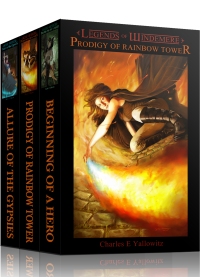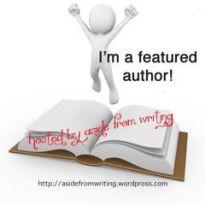
Everyone loves an underdog. At least that’s what people say. These aren’t as easy to write as one would think. You have a lot to consider and a delicate balance to maintain for the adventure. What are some ways to make sure that happens?
- Know the definition of an underdog. That means the hero is considered to have little or no chance of success. It doesn’t mean that they are the strongest character in the story, but have a long walk ahead of them. They need to be at a level below whatever they are facing to be a real underdog.
- The title doesn’t remain indefinitely. Yes, I’m using two tips to drive this point home because people don’t get it. An underdog can become powerful enough to be a real contender. As soon as he or she wins, he is no longer an underdog as well. The best example I can think of is Rocky Balboa. He was the underdog in the first two movies since nobody thought he had a chance and he was lacking. The rest of the series, he’s the champion or a powerful contender. Don’t mistake a character being slightly weaker for having not chance either. Yeah, he lost to Clubber Lang, but I still don’t believe he regained the underdog title.
- Characters who are underdogs don’t always realize their position. Many are able to continue on because they believe in themselves. They understand they have weaknesses, but think that their positive qualities are enough to counter this. Now, this could be true. In fact, most times it is and that’s why underdogs can win. The label is primarily given and thought of by other characters and the audience.
- Training and special gear can help improve the chances of an underdog, but it doesn’t entirely clear them. It’s still the same character and he can still go into the main fight with a hindrance. His chances have improved to little in this case. Maybe the training isn’t enough or the gear is damaged. You have to be careful about making this change a sure thing. Otherwise, the hero and villain are on equal footing, which tends to go to the side of good.
- An underdog hero can remain as such and still be a danger due to how they think and act. An unpredictable or cunning nature means that they have a mental aptitude for problem solving. If not that then at least doing the unexpected, which can take a more powerful character by surprise. For example, Luke Callindor in Legends of Windemere is an underdog in many of his fights. When not fighting regular monsters, he tends to be overpowered and less experienced than his enemy. He wins by doing the unexpected and thinking his way through. This does get dicey near the end of the series though, so I’d give it to him for around the first 6 books.
- There is no shame in a character rising from an underdog status. Don’t be afraid to have this happen if it works for the story.
- Other characters are allowed to be fully aware of a hero being an underdog and react accordingly. They can have faith in them, but 9 times out of 10 it is obvious that they’re backing the weaker combatant. This is what can lead them to help the hero instead of sitting on the sidelines. More powerful people may take it upon themselves to train the underdog up. On the other side of the battle, a villain could easily underestimate a weaker opponent until it is too late.





I always pictured John Cannon (Protagonist in the John Cannon trilogy) as an underdog. Good points, Charles.
LikeLiked by 1 person
I think you’re right. He does have a lot of underdog traits. Villains certainly underestimate him.
LikeLiked by 1 person
😊
LikeLike
Great tips! I love an underdog story, because it so compelling. That person doesn’t have an automatic assurance of victory; yet he or she goes to the fight anyway. Many underdog stories are the most satisfying stories, because many of us can relate to the underdog status.
LikeLike
I think they’re a lot of fun to write. They’re not easy either. Some people don’t really try, so you get a self-proclaimed underdog that is clearly advantaged in all areas.
LikeLiked by 1 person
Reblogged this on Chris The Story Reading Ape's Blog and commented:
More excellent tips from, Charles 👍😃
LikeLike
Thanks for sharing.
LikeLiked by 1 person
Welcome, Charles 😃
LikeLike
You have a great point about their mentality of knowing they are less powerful and making up for it with smarts. Do you think, as a character grows more powerful, that they automatically lose their smarts?
LikeLike
No. I think a character who grows more powerful can retain their smarts because they remember being weaker. These types know not to depend entirely on their increased strengths. Some characters may fall into the trap of losing their smarts to their superior strength, which tends to be caused by arrogance. I wouldn’t even say smarts so much as caution. Those who aren’t careful tend to come off as foolish and stupid.
LikeLike
Pingback: Five Links 6/27/2020 Traci Kenworth – Where Genres Collide Traci Kenworth YA Author & Book Blogger for all Genres as well as craft books
Another great post. My story, Will O’ the Wisp is about an underdog. I relate to the concept and think it makes for better fiction even if you don’t make it obvious. I always wondered how some writers kept the stories about real heroes interesting. I’ve read a lot of Conan books back in the day, and there was never a doubt that he would be victorious. Keeping someone like Conan interesting is a trick I’d like to learn. I’ve written damned near invincible characters, but always minimized their presence in the story. My character, Clovis, is like that. His scenes are pretty memorable, but he doesn’t get most of the page time. Oh, and I have the Underdog theme song on my playlist somewhere. Loved that song.
LikeLike
Conan is from the pulp fiction days. That was a different time and mentality where the heroes always won. The thing that kept him interesting was more the world and adventures than himself. He also had page presence, which is why you would think that he could never lose. Yet, I remember in all of the stories I read, the only reason I knew he’d win isn’t because of his strength. It was because I know the genre and how he already makes it. Many of his enemies did outclass him in some respects to be at least on common ground.
Invincible characters are tough. Clyde is like that, so I’ve had to add more internal flaws to him. People may firmly believe that he’ll always win, so I make it clear that he might still lose something.
LikeLiked by 1 person
To my mind, someone like Clyde would be much harder to write than someone like Luke. I love pulp and read Conan like crazy.
LikeLike
They both had their challenges. Opposite ones too. While a reader complains about Clyde being too strong, I had many take issue with Luke losing fights or getting beaten up. Just can’t please everyone.
LikeLiked by 1 person
No we can’t. I’m lucky to please myself.
LikeLike
Pingback: Voices of Young Heroes — Review – Rosi Hollinbeck
Pingback: 7 Tips to Writing Underdog Heroes – Kerlan's Fun Life
Pingback: What Is a Morally Gray Character? 3 Tips on How to Write One - Em Dash Press